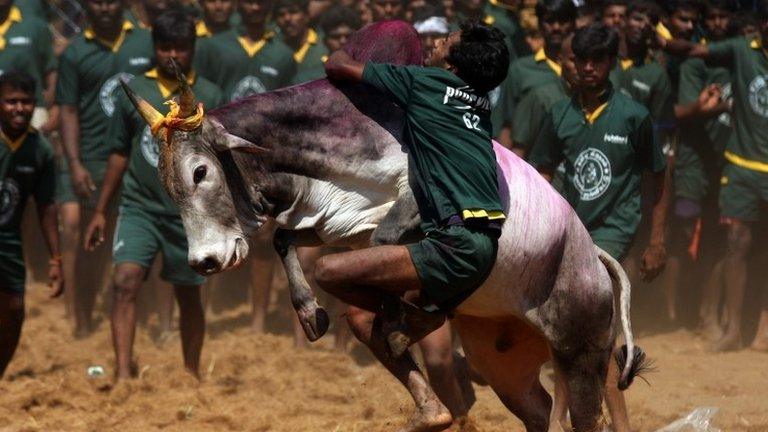Jallikattu: Thousands protest at India bullfighting ban
- Published

Thousands are protesting at Chennai's Marina beach
Thousands of people in India's southern Tamil Nadu state are protesting against a ban on bullfighting.
At least 4,000 people have been camping at Marina beach in the state's capital, Chennai (Madras), since Tuesday night.
Traditional bull-taming contests, known as Jallikattu, have been popular for centuries in the state. Protesters say they represent its identity.
But the Supreme Court banned it in 2014 after objections from animal rights groups. It upheld the ban in 2016.
BBC Tamil reports that similar protests are being organised on Wednesday in other parts of the state. Calls have been made on social media asking people to join the protests.
The state that loves bullfighting but isn't Spain



Tamil cinema actors, including Vijay, GV Prakash Kumar and Suriya, have also backed the protesters.
"Peta [animal rights group] may have won a campaign in the court of law but has lost in the people's court. Their claim that Jallikattu is inimical to bulls is full of lies. They talk about cruelty to bulls but they don't realise that by banning Jallikattu, they are aiding in the extinction of rare cattle breed," Suriya said in a statement.
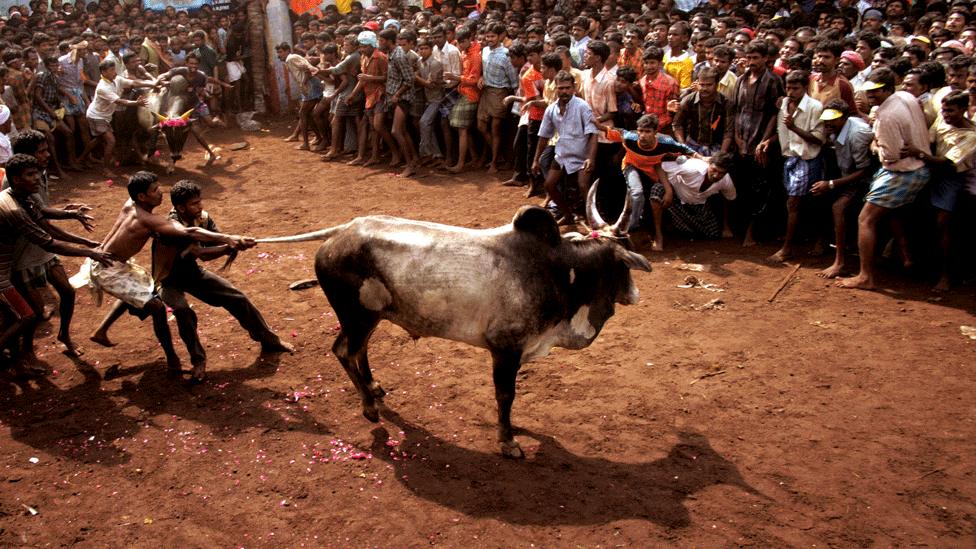
Bullfighters are supposed to hold on to the animal's hump for about 15-20 metres or three jumps of the bull to win the prize
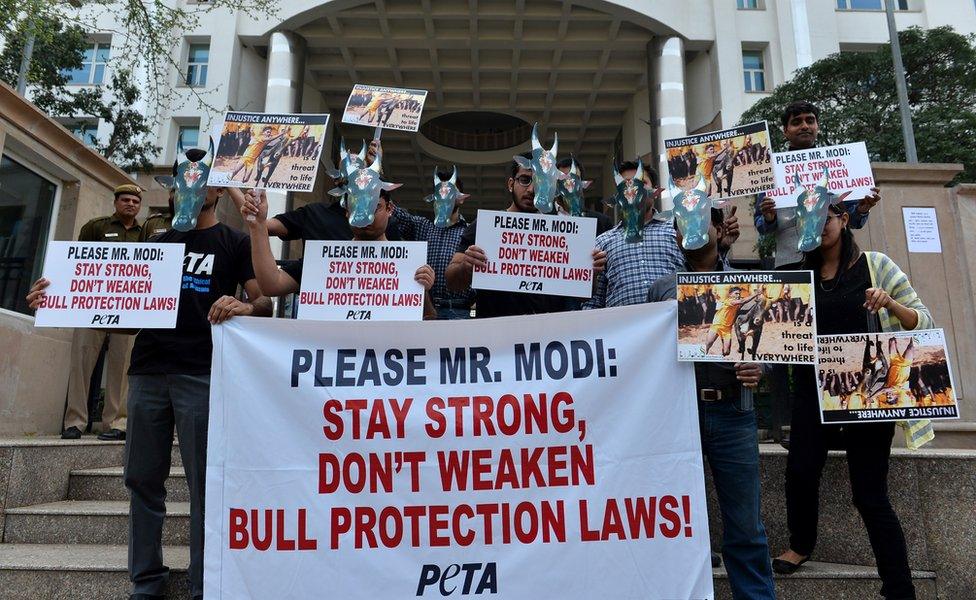
Animal rights activists have been urging Prime Minister Narendra Modi to support the ban
But animal rights activists have supported the ban, saying the sport is "cruel to animals".
'State-wide protests'
Jallikattu is traditionally practised during the harvest festival of Pongal in January. Thousands of men chase bulls to grab prizes tied to their horns.
But no large-scale Jallikattu events have been organised for the past two years. This year, however, some people went ahead and held bullfighting events on 14 January. Since then protests have spread across the state.
BBC Tamil's Sivakumar U says the state government's call to end the protest has had no effect so far.
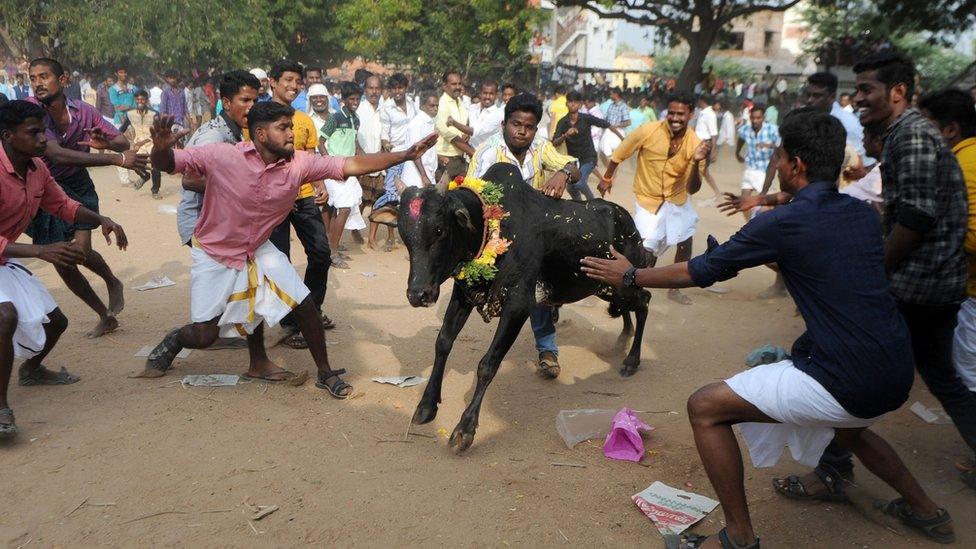
Some people organised Jallikattu events this year despite a ban
"The protesters believe that the sport represents Tamil Nadu's culture and identity and a ban on it is seen as a direct attack on the state's traditions," our correspondent adds.
In Jallikattu, bulls are released from pens, with bullfighters supposed to hold on to the animal's hump for about 15-20 metres or three jumps of the bull to win the prize.
It is more than 2,000 years old and considered to be one of the oldest sports still practised in the modern era.
Over the years, scores of people have been gored or trampled to death in the contests.
Hundreds, including spectators, have been mauled or injured.
- Published7 January 2016
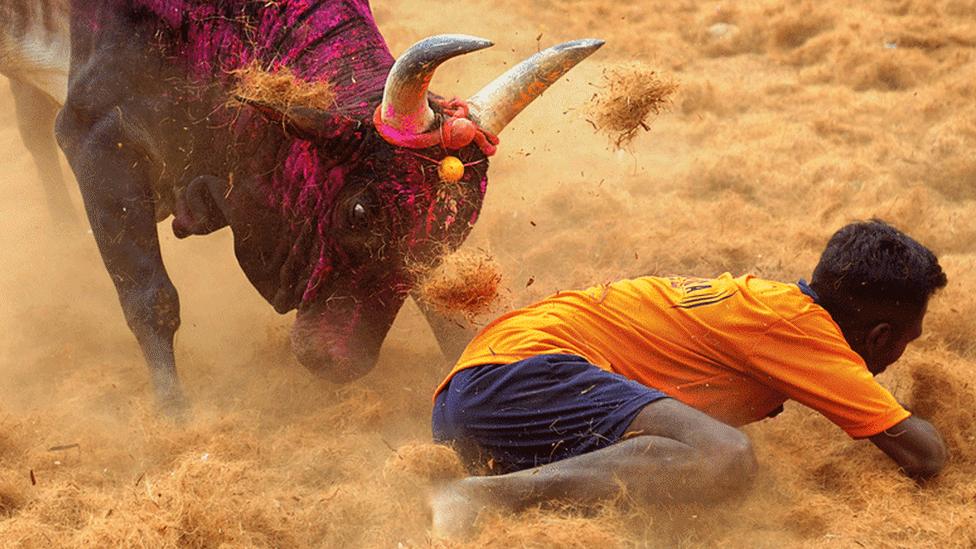
- Published19 July 2016
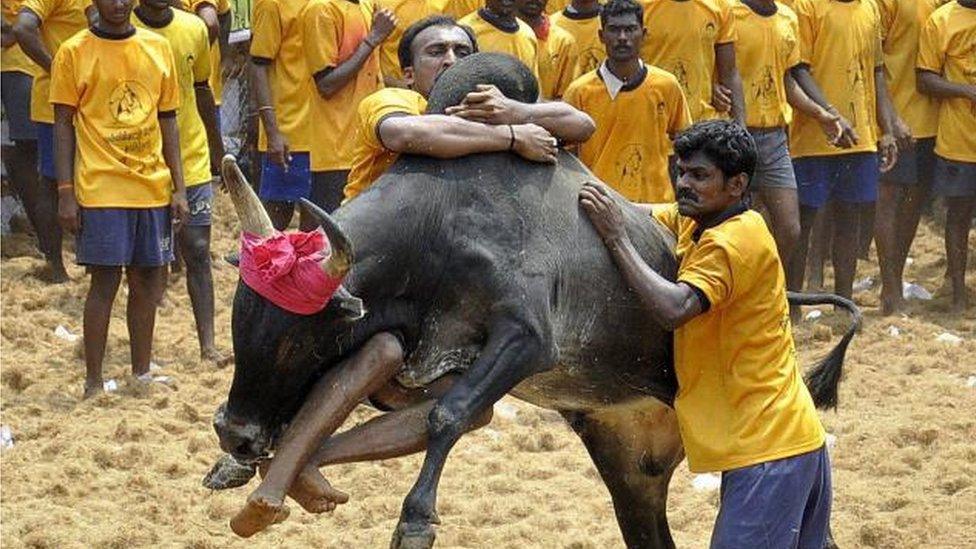
- Published12 January 2016
